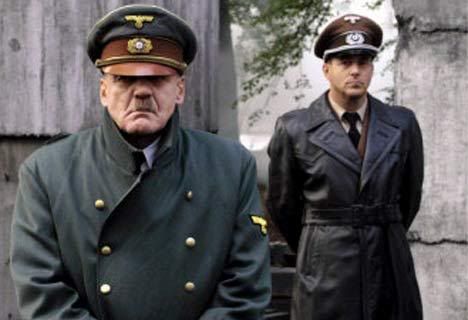Indeed i am ruf, and thank you for the learning you have given me here

I have looked into the history of Rourke's Drift a little as a result of the film, but clearly nothing on your scale

The Caine quote was of course tongue-in-cheek (although he has done some awful wage-padding films amongst the gems

) and was intended to echo the reservations many Brits have about the more scurrilous aspects of imperialism (opium pushing, massacres & the like, divide-&-conquer arrogance, casual shelling of cities for slurs cast on a single half-citizen, etc etc). Not that I think we were all bad. We never quite achieved the astounding inhumanity of creating a brand new bloody 'racial' schism (IE the apparent German/Belgium role in fostering/inventing the Tutsi/Hutu physiognomy-based divide). For example.
Never-the-less, i put
Zulu forward as a 'revisionist' film precisely because it focuses on the working soldiers, defending themselves against partially unprovoked attack, in a way which leaves us with a rosy red-coated appraisal of pluck on display in this particular push through Africa. The point about the territory in question being 'unclaimed' seems moot - The Brits surely moved through and towards occupied lands to get there (and, according to Wikipedia anyway, were seeking local dominance over the Zulus). I totally get the bravery & resilience of the soldiers in question (& of course there's a doff of the hat to the ferocious Massai-style nuttiness of the Zulus), but I always walk away from the film with a 'glorified glow' - which I then come to analyze afterwards and somewhat regret (in terms of Empire-guilt etc). Taken in isolation their actions were heroic, no doubt, but I can't help but feel slightly amiss if I take glory-moments of history in isolation. (It's worth mentioning they had more than walls to defend themselves, no? They had guns

. And that in some ways reflects the inequities of many Brit Empire expansions.)
That said, cool posts

I've had the good fortune to visit the UK (mostly London and Aberdeen) on a few occasions and have always enjoyed the people I met over there. And I agree with you on Caine--he has given wonderful performances in top films and also showed up in some of the worst movies ever made. I think he's more concerned with a paycheck than the script.

Got a smile out of your statement "The point about the territory in question being 'unclaimed' seems moot - The Brits surely moved through and towards occupied lands to get there . . " Actually, they came by ship--South Africa has some of the world's best beaches and ocean resorts. As for guns against spears, the Zulu had a bunch of British Enfields taken from dead British soldiers in the earlier massacre. And as far as defensive walls, look what happened to a bunch of Texans at the Alamo in 1836.

But I'm just tugging your chain, not nit-picking.
I'd be the first to acknowledge that British Imperialism has been a major pain in the butt to the occupied countries throughout history. After all, my US ancestors fought two wars just to get away from England.

What England and others did in China up to and after the Opium War was indefensible. No thinking person can defend massacres of defenseless victims by anyone, even though on occasion it was ordered by British officers and executed by native troops. But to its credit the British public were just as angered by such injustice and often pushed its elected officials to do the right thing.
On the other hand, I don't know of any former colony that tore up the roads, railroads, hospitals, schools, dams, power plants, factories, and other public buildings and facilities that the Brits left behind when they moved out. And in most cases Britain remained the primary trading partner when former colonies became self-governing. That certainly was the case with the US for more than 100 years.
Now does that cancel out all of the bad things done by individual Brits or by government officials? Most likely not, because it's impossible to measure. Like one famous Brit once said, "The evil men do lives on, the good is interred with their bones." Or something to that effect.
And it certainly is no defense to say worse things happened in Belgium's Congo colony or that the Japanese occupation of China and Southeast Asia was more deadly than former British occupations. Evil cannot be excused by a bigger evil.
But if the people of the World War II Allied nations can praise Clint Eastwood's movie that humanizes the Japanese on Iwo Jima, then I think it's OK for you to take a bit of pride in a film about the fighting ability of the British army at Rourke's Gulf.
I think
Zulu is best summed up by one line of dialogue in the film: It's in the scene where a frightened young soldier, certain that he's facing his doom in the coming battle, asks the grizzled veteran First Sergeant, "Why us?" To which the sergeant replies, "Because we're here, son, and no one else." I admire the pluck and ability of the British Tommy who has always been there on the front lines doing his duty through the bad wars as well as the good.
I also get a thrill in
The Wind and the Lion in that scene where the US Marines in combat gear doubletime down a street in Morocco past the embassies of European nations, wheel onto the grounds of the local sultan, deploy in a combat formation, and on their officer's order open fire on the palace guards. No last minute warning, no plea for continued discussion, just blam! Sometimes at some point there's just no alternative to direct action.

 )
)
 )
)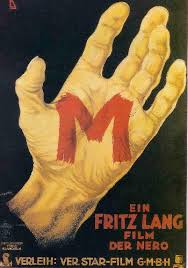
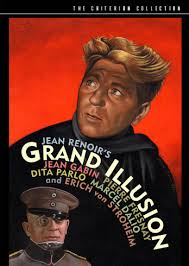
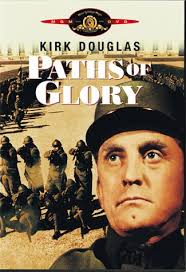
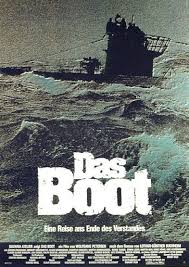
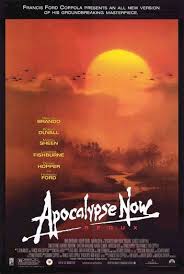
 (You've only just stopped casting Brits as baddies as a result
(You've only just stopped casting Brits as baddies as a result 
